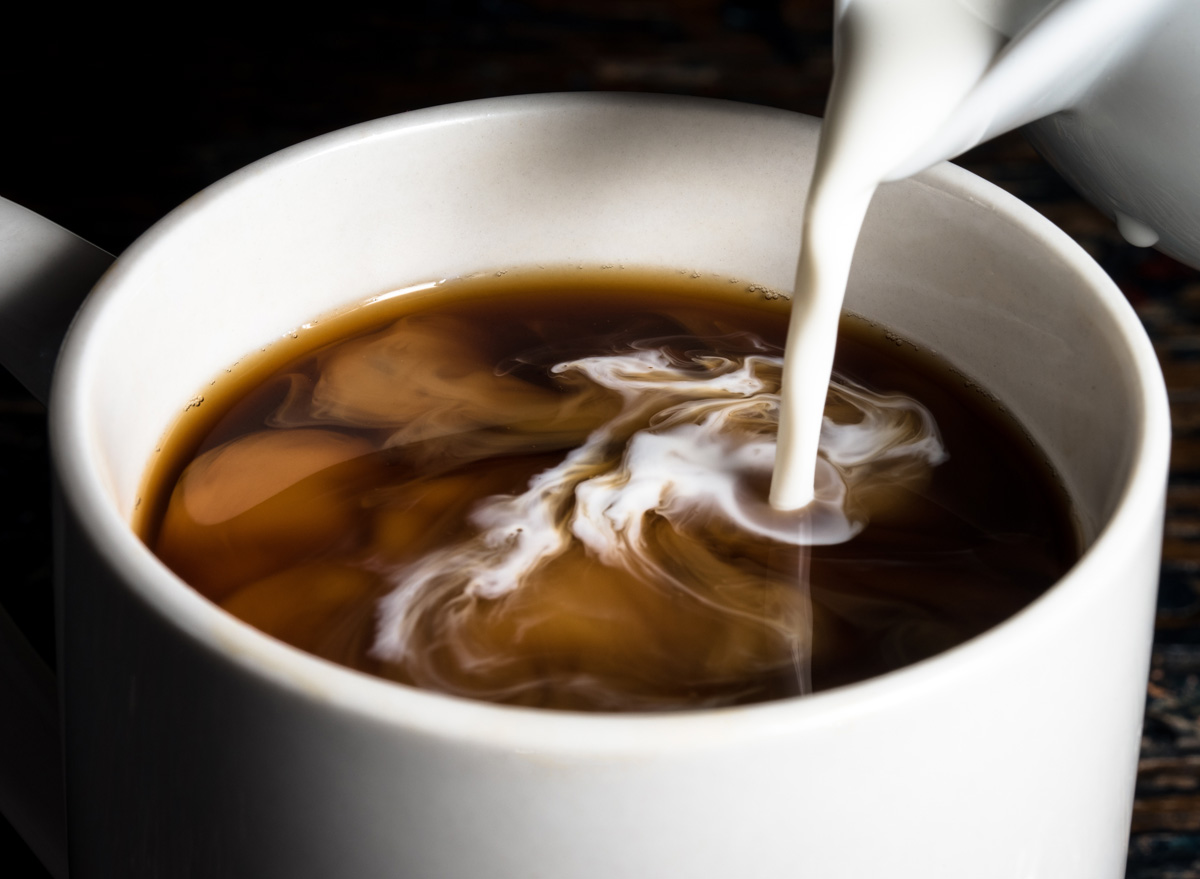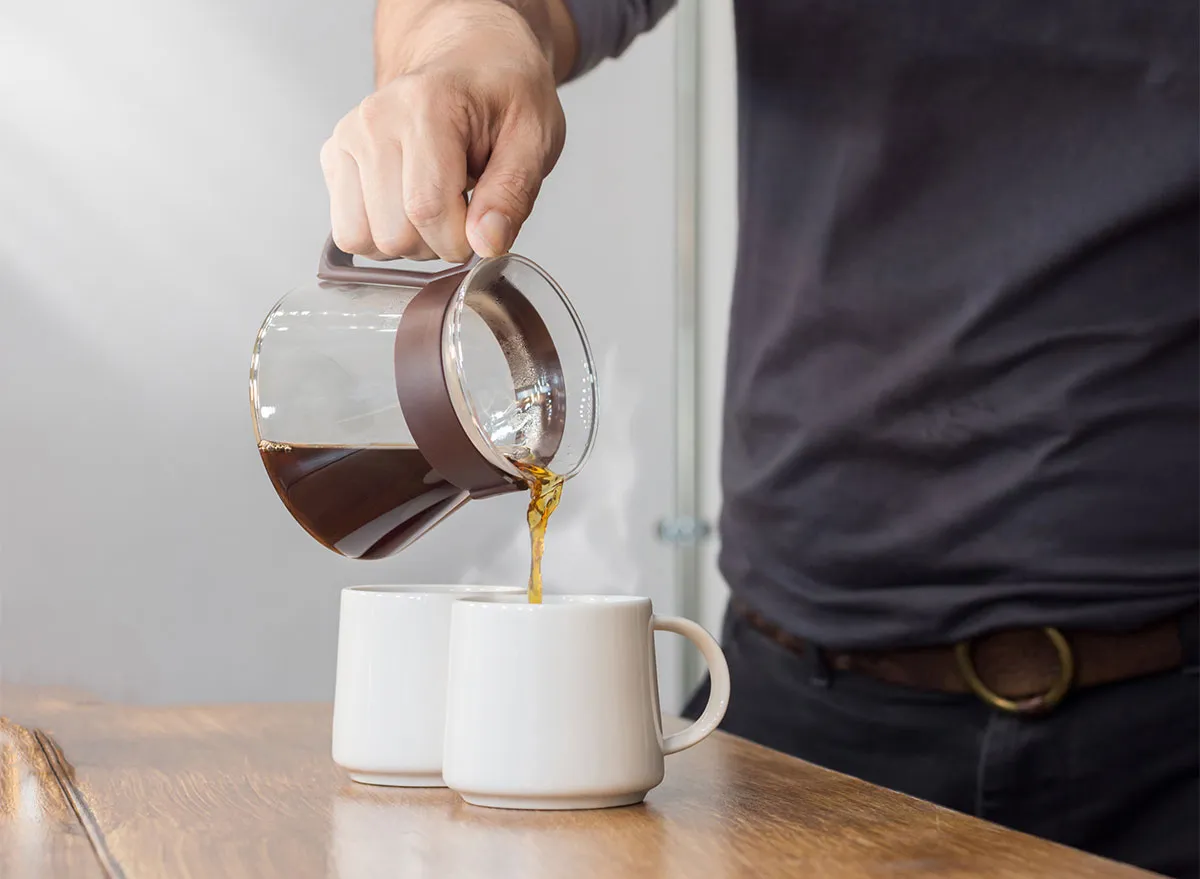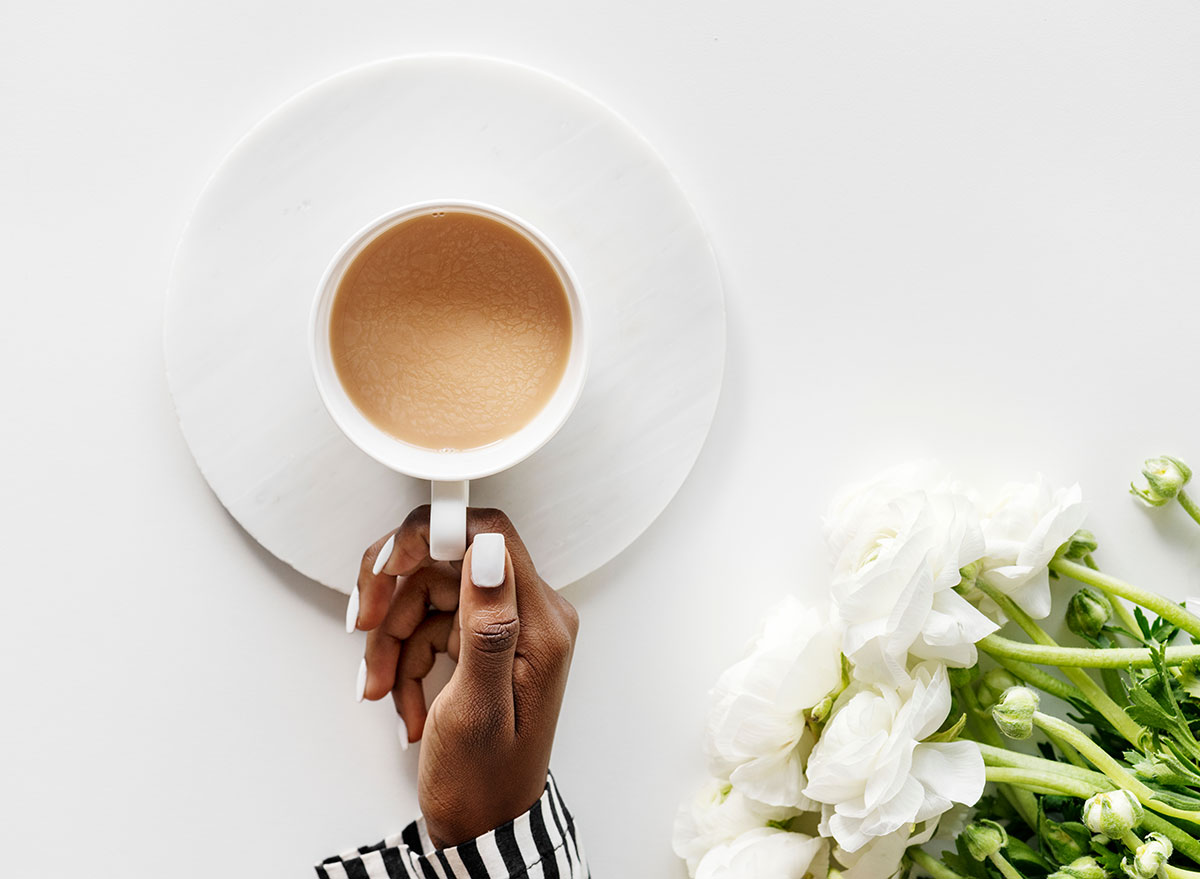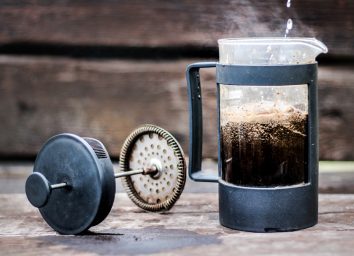The Worst Times to Drink Coffee, According to Dietitians

Coffee just might be one of the most revered beverages of the modern era—and for good reason. Americans crave the caffeine hit, the productivity boost, the flavor. And the benefits of a cup o’ joe don’t stop at simple alertness; black coffee can enhance cognitive skills, help with digestion, act as an anti-inflammatory. Nutritionist Sharon Katzman points to small amounts of new research that suggests that coffee might even be a helpful ward against dementia.
But with so many benefits, is there any circumstance in which coffee might actually do more harm than good? We spoke to the experts and rounded up the worst times to drink coffee. Plus, don’t miss 8 Coffee Brands That Use the Lowest Quality Ingredients.
After noon.

As in literally after 12 p.m. Although it might seem like mid-morning, noon is the marker Katzman uses for her clients—coffee after 12 p.m. can seriously interfere with your sleep schedule.
One way to circumvent this issue, for lovers of the 3 p.m. coffee: try subbing your hot morning coffee for cold brew.
“Cold brew typically has a higher caffeine count than hot coffee,” says Ella Davar, RD, CDN. “This is because you generally need more coffee grounds per ounce of water to make cold brew than you do for conventional hot coffee, which also makes a more concentrated cup.”
So a cold brew at 11:30 a.m. might keep you going long enough to forgo the afternoon cup, whereas that steaming K-cup is less likely to carry you all the way.
Here are 14 Side Effects of Drinking Coffee Every Day, According to Dietitians.
When you’ve already had 2 cups.

Coffee is no exception to the old “everything in moderation” adage. That said, you can have a pretty sizable amount without overdoing it. Katzman advises to cap intake at 2-3 cups—after cup 3 or 4, she says, it can become dehydrating. And drinking more than 4 cups a day is considered one of the Coffee Habits That Are Shortening Your Life, According to Science.
When you haven’t eaten anything else.

Davar flagged an issue you might have already discovered, during your morning coffee; because the beverage is acidic, drinking it on an empty stomach can cause discomfort. Katzman also sites the acidity levels as potentially problematic for people with heartburn, reflux, digestive issues, and even just an upset stomach.
But there are ways to dodge stomach pain! Davar recommends buying organically grown non-GMO beans—which have the lowest toxin burden and highest antioxidant content—and taking your coffee with some sort of milk to reduce acidity levels.
For those of you who crave coffee first thing in the morning, Davar notes that cold brew does tend to be less bitter and acidic than regular coffee. Try brewing it overnight!
When your cholesterol levels are high.

If you struggle with high cholesterol, you do not need to cut coffee out of your life. But, Katzman advises, you may want to consider how you drink it.
While most filtered coffee has been shown to have a neutral effect on lipid levels, unfiltered or french pressed coffee actually can increase LDL “bad” cholesterol. So, if your LDL levels are high, consider a paper-filtered coffee to help avoid them spiking higher.
On a daily basis.

As avid drinkers know, coffee can become a habit so strong it borders on addiction. Davar recommends any break you can manage from daily intake.
“I recommend moderation, because [stimulants] like coffee have a direct effect on energy levels. They do this by increasing the activity of the central nervous system—stimulating hormones (like adrenaline) and neurotransmitters that impact our energy,” she says. “The problem is that our body adapts to their effects and requires increasing doses to obtain the same effect; eventually leading to burnout and fatigue.”
Davar tells clients to aim for coffee 4-5 days a week and replace the beverage with matcha or green tea whenever possible.
Here are the Dangerous Side Effects of Drinking Coffee, According to Science.









